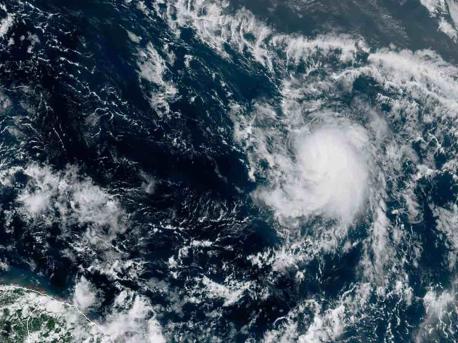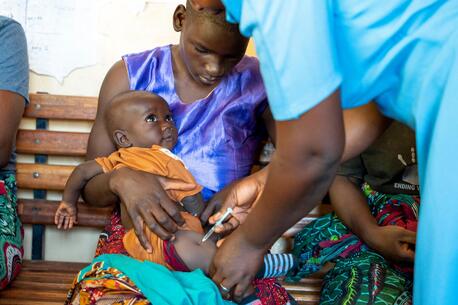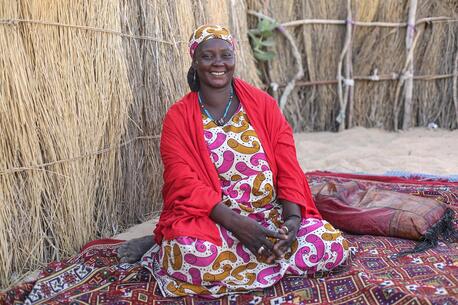
Tropical Storm Gonzalo Bearing Down on Several Caribbean Islands
As the 2020 season's seventh named storm drenches the Caribbean, UNICEF readies emergency supplies to help communities hard hit by COVID-19.
UNICEF is closely monitoring Tropical Storm Gonzalo, which is now moving through the Eastern Caribbean, home to 2.3 million people – including almost 600,000 children.
Gonzalo is the earliest seventh named storm to form in the Atlantic. Already struggling with the impact of COVID-19, communities well aware of the devastation caused by Hurricanes Irma and Maria in 2017 and Hurricane Dorian in 2019 are focusing on being prepared.
Gonzalo is causing gusty winds over portions of the southern Windward Islands along with heavy rains that could lead to life-threatening flash floods.
Reeling from the COVID crisis, which has harmed the region's heavily tourism-reliant economies, families are already suffering from job losses, heightened food insecurity and school closures that have left children struggling to learn. With experts predicting a more severe Hurricane Season for 2020, the impact on children could prove devastating.
UNICEF has prepositioned emergency supplies
UNICEF is now issuing warnings to vulnerable communities and readying supplies to spring into action as Gonzalo continues its course. Teams are now working hard to address the myriad logistical challenges. Collaborating with partners to deliver relief during the coronavirus pandemic requires new protocols — with a heavy emphasis on handwashing and social distancing. UNICEF and national agencies and partners have laid the groundwork over the last few months through their work to control the spread of COVID-19 via risk communication and community engagement, issue of safe school guidelines, support for digital learning and children's emotional well-being, handwashing initiatives and more. UNICEF is also tailoring its response to see that vulnerable groups amongst the potentially affected population — including children in institutions and the estimated 33,400 migrants from Venezuela now living in Trinidad and Tobago — receive particular care and attention.
The UNICEF team in the Eastern Caribbean and national authorities and local counterparts are poised to respond and provide quickly:
- Emergency water and hygiene supplies, enough for over 3,000 people
- Tents that can be used for shelter, pop-up health and counseling centers and Child Friendly Spaces
- Supplies — School in a Box, Recreation Kits, Early Childhood Development resources — to help children access the respite that learning and playing offers during emergencies
Each year the Atlantic hurricane season sees the formation of tropical cyclones through November. The National Oceanic & Atmospheric Administration’s 2020 forecast has already warned that in 2020 we could see 13 – 19 "named" storms (winds up to nearly 40 mph), of which 6 – 10 could become hurricanes (winds of 74 mph), where 3 – 6 of them may be category 3, 4 or 5, with winds of 111 mph.
Unusually warm waters in the tropical Atlantic have created volatile climatic conditions. This year, before the season had even begun, we have already seen two named storms, a worrisome sign for children and families already living under great duress.
Photo: Tropical Storm Gonzalo churns toward the Caribbean's southern windward islands to make predicted landfall in Grenada, Barbados and St. Vincent and the Grenadines tomorrow. © UNICEF/UNI353643/RAMMB/NOAA/NESDIS/AFP


